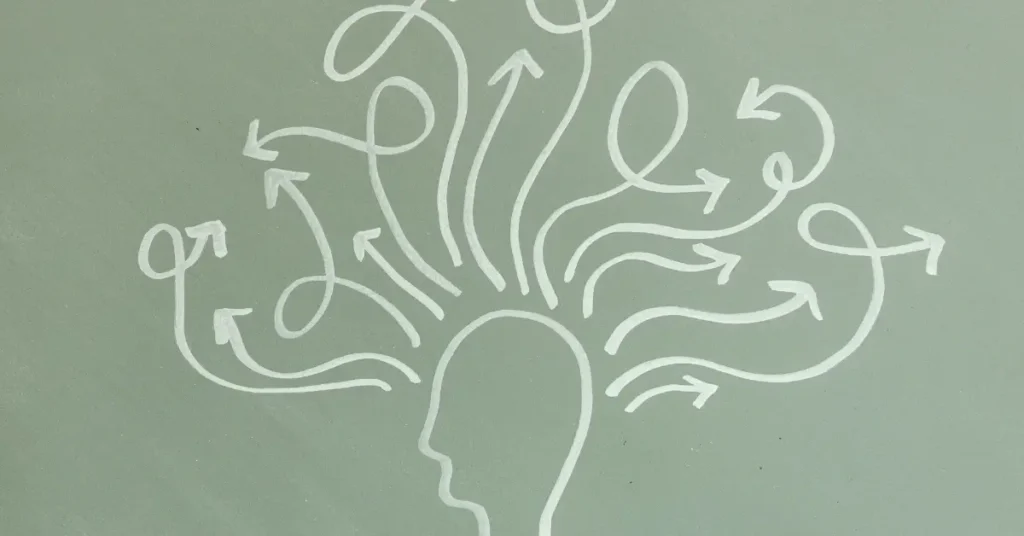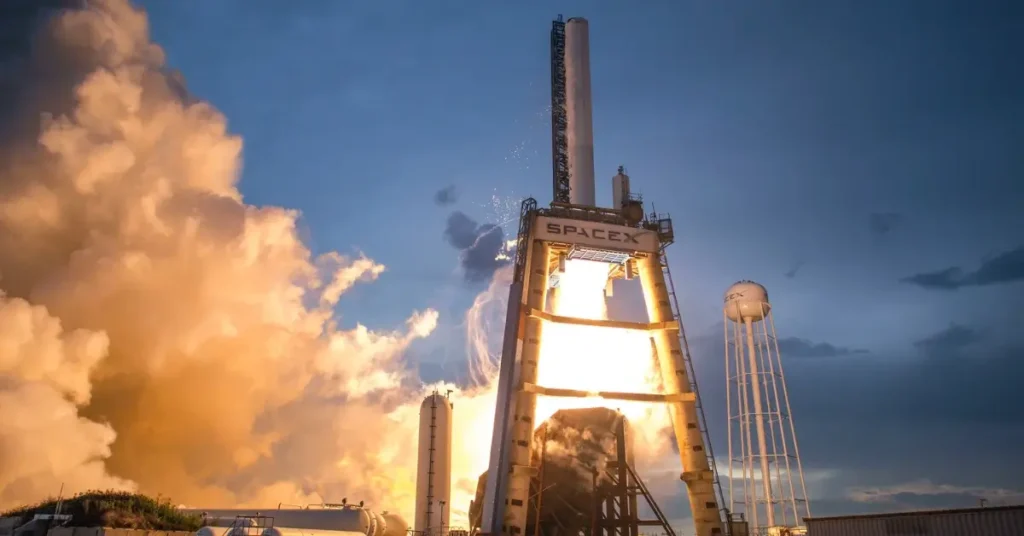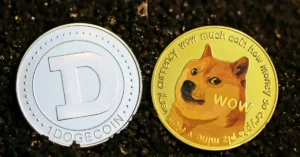Elon Musk and ADHD: Elon Musk, the Chief Executive Officer of Tesla and SpaceX, is renowned for his ceaseless creativity, resourcefulness, and remarkable knack for conceiving revolutionary concepts. However, what might be unknown to many, is whether the tech tycoon is part of the large population affected by Attention Deficit Hyperactivity Disorder (ADHD). ADHD is a neurodevelopmental disorder that presents challenges with attention, impulsivity, and hyperactivity. This leads to an interesting question that still sparks speculation: does Elon Musk have ADHD?
The fascination with understanding the minds of successful individuals often leads to a natural curiosity about their cognitive wiring. Elon Musk’s accomplishments and unconventional thinking have made many wonder if ADHD could contribute to his extraordinary drive and success. As a condition that notably impacts an individual’s ability to focus and regulate impulses, ADHD can sometimes present significant challenges in one’s personal and professional life. However, it may also be a catalyst for creativity and innovative thinking in some instances, as it can encourage thinking outside the box and generating novel ideas.
In recent years, Elon Musk has been open about being diagnosed with Asperger’s syndrome, a condition on the autism spectrum. Autism and ADHD, although different in their symptoms and presentation, share some commonalities in how they can impact an individual’s thinking and approach to problem-solving. Thus, the connection between these neurodiverse conditions and the characteristics that drive Musk’s success has become an area of significant interest. Exploring if and how ADHD plays a role in Elon Musk’s life reveals intriguing insights into his journey and valuable information about how neurodiversity shapes our world.
Elon Musk ADHD: Does He have it?
Elon Musk, an iconic entrepreneur and CEO behind Tesla and SpaceX, has been a subject of interest for many people, especially regarding his personal life and cognitive differences. While he publicly revealed that he has Asperger’s syndrome, many wonder if he also has attention deficit hyperactivity disorder (ADHD).
In entrepreneurship, individuals with ADHD are often successful due to their unique traits like hyperfocus, intense drives, and innovative thinking. This has led to curiosity about whether Musk also possesses this condition, contributing to his noteworthy achievements.
While Elon Musk has not explicitly disclosed his ADHD, it is crucial to consider the characteristics and challenges those with this condition face. ADHD is often associated with difficulties in focusing, impulsiveness, and disorganization; however, individuals might have some advantageous traits such as creativity, energy, and resilience.
According to a study, people with ADHD have been found to excel in entrepreneurial roles, as their hyperfocus, drive, and out-of-the-box thinking can help bring innovative ideas to fruition. This indicates that, even if Musk were to have ADHD, it could potentially enhance his capabilities as a business leader.
It’s worth noting that Musk’s announcement of having Asperger’s syndrome does highlight his experience with neurodiversity. Asperger’s is often comorbid with conditions like ADHD, which could increase his chances of having the latter. Nonetheless, this remains speculative, and no confirmation exists as of now.
In summary, despite Elon Musk not directly disclosing that he has ADHD, his public revelation of Asperger’s syndrome sheds light on some cognitive differences he experiences. While ADHD can share numerous characteristics and comorbidities with Asperger’s, it is crucial to remember that only an official diagnosis can conclusively label an individual with this condition.

Elon Musk’s Personal Background
Childhood and Learning Disability
Elon Musk, born June 28, 1971, in Pretoria, South Africa, is a prominent entrepreneur and business magnate known for founding X.com (later PayPal), SpaceX, and Tesla Motors. Despite his incredible accomplishments today, Musk faced challenges in his youth. Growing up, he was often misunderstood and encountered difficulties in social situations. Could these early experiences be connected to a learning disability?
Although no concrete evidence confirms a learning disability, it’s worth pondering if certain aspects of his behavior could be attributed to one. Some anecdotal accounts on Quora suggest behavioral traits consistent with ADHD, such as mental hyperactivity, rapid speech, and quickly shifting focus from project to project.
Asperger’s Diagnosis
In a surprising revelation, Elon Musk shared that he is neurodivergent and has Asperger’s Syndrome, a form of autism typically characterized by social difficulties, repetitive behaviors, and narrow interests. This disclosure has resonated with others who face similar challenges and demonstrated the power of authenticity in personal narratives.
With this diagnosis in mind, Musk’s childhood challenges seem more understandable, as those with Asperger’s often face communication and social interaction issues. As an adult, Musk has channeled his incredible cognitive abilities and focused interests into groundbreaking innovations.

ADHD and Business Leaders
The world of business is no stranger to individuals with ADHD. This neurological condition, often marked by hyperactivity, impulsivity, and challenges in executive functioning, has not stopped some prominent business leaders from achieving remarkable success.
David Neeleman
David Neeleman, JetBlue Airways’s founder, and an airline industry icon, has achieved incredible accomplishments while living with ADHD. Neeleman has embraced his neurodiversity, attributing his creativity and ability to think outside the box to his condition. Despite the challenges posed by ADHD, Neeleman’s visionary approach to business has significantly impacted the airline industry and demonstrated that unconventional thinking can drive innovation.
Richard Branson
Sir Richard Branson, the founder of the Virgin Group, is another business magnate who has prospered despite having ADHD. Branson’s entrepreneurial journey is a testament to his tenacity and resilience. He has overcome the hurdles associated with ADHD while establishing an empire that spans various industries, including music, telecommunications, and space travel. Like Neeleman, Branson’s unique perspective and problem-solving abilities can be credited, in part, to his neurodiversity.
Disability and Business Success
It is essential to highlight the broader theme of disability and business success. Both Neeleman and Branson represent a group of entrepreneurs who have harnessed their strengths while managing their unique challenges. This success can be attributed to a few key factors:
- Resilience and adaptability: Successful individuals with disabilities often develop exceptional resilience and adaptability, which serve as valuable skills in the business world.
- Innovative thinking: Neurodiverse entrepreneurs can bring fresh, innovative ideas to their industries, benefiting from unique cognitive traits associated with their conditions.
- Support and accommodations: Businesses that provide appropriate support and accommodations for employees with disabilities can facilitate an inclusive work environment where everyone can thrive.

Neurodiversity in Entrepreneurship
Did you know that successful entrepreneurs like Elon Musk are embracing their neurodivergent traits? The business world is becoming more inclusive of individuals with diverse cognitive styles, and it’s time we shed light on the power of neurodiversity in entrepreneurship.
Some of the most creative minds behind groundbreaking businesses have been found to possess neurodivergent conditions, such as ADHD, autism, and dyslexia. As it turns out, these conditions may contribute to the unique strengths and talents that propel them to success. Recent Research has even shown that ADHD-related neurodiversity is meaningfully related to aspects of an entrepreneurial mindset.
In the entrepreneurial landscape, various neurodivergent individuals thrive due to their ability to think differently and approach problems uniquely. For instance, Elon Musk, who revealed Asperger’s syndrome, has revolutionized industries such as electric cars and space travel with his ventures like Tesla and SpaceX.
These successful neurodivergent entrepreneurs share some common attributes that undoubtedly help them in their endeavors:
- Increased creativity: Being wired differently can lead to out-of-the-box thinking and innovative ideas.
- Intuitive cognition: Entrepreneurs with ADHD have been found to employ a more intuitive cognitive style, which may contribute to faster decision-making.
- Entrepreneurial alertness: A heightened sense of opportunity recognition is often associated with neurodivergent entrepreneurs, enabling them to identify business possibilities where others might not.
Acknowledging the positive aspects of neurodiversity in entrepreneurship not only scientifically validates the experiences of these individuals but it also creates an environment where the perception of neurodivergent conditions shifts towards a strengths-based approach. Embracing neurodiversity can open doors to more inclusive workspaces and set the stage for other aspiring entrepreneurs who are neurodivergent. After all, a diverse brain can be an asset in the ever-changing business world.

Elon Musk’s Approach to Work and Life
Impact of Dyslexia
Although it is not confirmed that Elon Musk has ADHD, he has revealed that he is dyslexic, which may have influenced his approach to work and life. As a dyslexic individual, Musk faces challenges in reading and writing. However, this did not deter him from achieving immense success in creating groundbreaking companies like Tesla and SpaceX.
Dyslexia often comes with unique abilities, such as thinking outside the box and visualizing complex systems. This could have helped shape Musk’s innovative ideas and unconventional approach to problem-solving in business. For instance, his work on electric vehicles and reusable rockets has transformed the automotive and space industries.
Strategies for Success
Elon Musk’s approach to work and life is built on relentless determination and a strong sense of purpose. He has employed a few key strategies that have contributed to his success in multiple industries:
- First principles thinking: Musk breaks down a problem or situation into its fundamental elements and rethinks the issue from scratch. This allows him to find innovative solutions that others might not have considered. An example of this is his approach to battery pack cost reduction.
- Visionary leadership: Musk’s strategies are shaped by what fits into his vision for solving critical problems and creating better lives for future generations. His ability to think big inspires his employees and fans alike.
- Fearless experimentation: Musk never hesitates to take risks and try new things despite various setbacks. His trial-and-error approach has played a significant role in the success of his projects.
- Extreme work ethic: He is known for working long hours, often clocking 120-hour weeks. This intense dedication has kept him at the forefront of his industries.
The Influence of Neurodiversity on SpaceX and Tesla
Imagine a world where individuals with unique cognitive abilities transform how we innovate and evolve. At the heart of this world stands Elon Musk, the enigmatic CEO of SpaceX and Tesla, who has openly spoken about being neurodivergent. How has his neurodiversity influenced the success and growth of these cutting-edge companies?
Elon Musk revealed that he has Asperger’s syndrome, a type of neurodiversity that has been suggested to foster unique problem-solving skills and unconventional thinking. This trait has benefited both SpaceX and Tesla, prompting innovative approaches to engineering and business challenges.
At SpaceX, Elon Musk’s determination to achieve seemingly unattainable goals has driven the company to develop groundbreaking rocket technology. For instance, Musk tasked a SpaceX engineer, Steve Davis, to construct a crucial part for the Falcon 1 rocket at a fraction of the estimated cost. Davis succeeded in delivering the part for $5,000, significantly reducing the overall expense. By pushing the boundaries of what is possible, Elon Musk has made SpaceX a trailblazer in the space industry.
The electric car manufacturer, Tesla, thrived under Musk’s leadership. His neurodivergent thinking has fostered a company culture of constant innovation and improvement. This has manifested in developing cutting-edge electric vehicles, unique business strategies, and championing sustainable energy solutions.
But how does Elon Musk’s neurodiversity impact the work environment for SpaceX and Tesla employees? It is essential to consider that not all experiences have been positive. Some staff members have reported high levels of stress and demanding workloads. However, the companies have also been encouraged to support their neurodivergent employees, which could lead to more inclusive and diverse workplaces in the future.
In this remarkable journey of innovation and transformation, one can’t help but wonder how Elon Musk’s neurodiversity continues to influence the trajectory of SpaceX and Tesla. By embracing different ways of thinking and problem-solving, the two companies have undoubtedly transcended conventional norms and placed themselves at the forefront of their respective industries.

Elon Musk on Saturday Night Live
When Elon Musk, the well-known entrepreneur and CEO of Tesla and SpaceX, took the stage as a host on Saturday Night Live (SNL) in May 2021, it was a much-anticipated and controversial event. The decision to have Musk host SNL was met with mixed reactions; some saw it as a sign of his increasing influence on society, while others questioned whether he was an appropriate choice for a comedy show. But what exactly happened during the live broadcast?
During his opening monologue, Elon Musk decided to be candid and reveal that he has Asperger’s syndrome, a high-functioning form of autism. His revelation gave viewers a glimpse into his personal life, and some may wonder if this was also an opportunity for Musk to raise awareness for neurodiversity. He joked about his eccentric behavior and notorious moments in his monologue, taking a lighthearted and reflective approach.
Throughout the night, Musk participated in various sketches along with the SNL cast; some topics included cryptocurrency, electric cars, and a parody of a post-apocalyptic Mars mission. His performance as the host was met with mixed reviews, with some praising his attempt at humor and others feeling that he fell short in delivering the comedic punchlines.
Despite the controversies leading up to his appearance on SNL, Elon Musk garnered significant attention and viewership. His episode received higher ratings than average, indicating the public’s curiosity and interest in Musk’s hosting.
While some may argue that Elon Musk’s hosting served as a publicity stunt, it undeniably brought attention to the show. It demonstrated his willingness to step out of his comfort zone. In any case, Musk’s appearance on Saturday Night Live will be remembered as a significant moment in pop culture history.
FAQ
Did Tesla have ADHD?
In retrospect, this cannot be answered with 100 percent certainty. However, there are many indications that Nikola tesla had ADHD.
Can geniuses have ADHD?
Yes, individuals with ADHD can undoubtedly possess exceptional intelligence and creative abilities. ADHD does not diminish a person’s intellectual capabilities, and many individuals with ADHD have demonstrated exceptional talents and accomplishments throughout history.
Is Elon musk intelligent?
Elon Musk’s IQ is 155; he is brilliant. His innovative ideas, successful ventures, and contributions to various industries have showcased his intelligence.
Is Asperger’s a disability?
Asperger’s Syndrome, now classified as Autism Spectrum Disorder (ASD), is a neurodevelopmental condition characterized by social interaction and communication challenges alongside restricted and repetitive behaviors. While it is considered a developmental difference, some individuals with Asperger’s or ASD do not perceive it as a disability but as a unique way of experiencing and interacting with the world.
Is autism a disability?
Autism is a neurodevelopmental condition that affects social interaction, communication, and behavior. It is recognized as a disability by many medical and legal definitions. However, it’s essential to approach the topic with sensitivity and respect for the diversity of experiences within the autism community. Individuals with autism can possess unique strengths and abilities, and the impact of autism on an individual’s life can vary widely.
Are there successful people with ADHD?
Yes, many successful people with ADHD, including Sir Richard Branson, Ingvar Kamprad, Justin Timberlake, Howie Mandel, and many others.
What is the average IQ of someone with ADHD?
There is no definitive answer to this question. While some studies suggest that people with ADHD may have higher IQs, others show no correlation between ADHD and intelligence. The average IQ range for adults is between 100 and 130.
Which billionaire has ADHD?
Sir Richard Branson, the billionaire founder of Virgin Group, has ADHD. He has spoken openly about his ADHD and believes that it has helped him succeed in business.
If you liked this blog article about the topic: Does Elon Musk have ADHD, don’t forget to leave us a comment down below to tell us about your experience.





